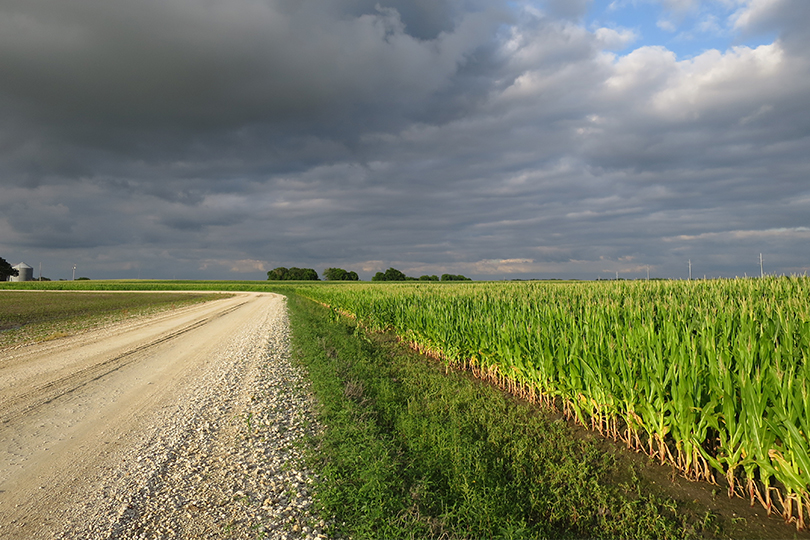By Jennifer Whitlock
Field Editor
In the Upper Gulf Coast region, farmers have seen a challenging growth season, according to Pioneer Agronomist Eleanor Aufdenkamp.
Heavy rains in May presented some issues, she noted in an interview with the Texas Farm Bureau Radio Network. But they can be overcome with a good crop management plan moving forward.
“We got anywhere from 25 to 45 inches of rain in the month of May. So, depending on where you’re at and whether you’re on the high or low side of the field, things are looking fairly good for being essentially drowned last month,” she said. “Our biggest struggles now are nitrogen deficiencies in corn and disease pressure.”
It is getting too late in the season to apply nitrogen on corn, so Aufdenkamp advised farmers in the region to focus more on southern rust and other disease treatment and prevention.
Scouting the entire corn field will help farmers make appropriate treatment decisions when deciding whether to spray for southern rust. Fungicide applications will not only help yields but prevent the disease from taking over the entire plant.
In sorghum crops, she recommends farmers watch for midges and sugarcane aphids and treat when the populations reach threshold levels. Anthracnose is another potential issue in sorghum that sat in water during the rainy period.
Weed pressure is another issue that needs to be controlled early for the greatest chances of success. Since spray rigs were not able to enter the fields in May, which is when area farmers typically apply their last herbicide application, Aufdenkamp said staying vigilant now is imperative.
Although each year is unique, 2021 is a year in which it is especially important to have a relationship with integrated pest management (IPM) advisers, cooperatives and seed sales representatives and agronomists, she noted.
“The biggest thing now is looking at what stage our crop is and what the value is going to be on the backside of whatever choice we make. Understanding that how we protect that bottom line, even when things look to be on the positive side for us, it’s still important that we keep our inputs positively affecting the output that we get for it,” she said. “So, that relationship with experts, whether it’s other farmers in the area or your respected Extension educators or even just industry folks, it’s important to keep them all looped in for questions and concerns as Texas throws us another weird year.”
Herbicides and pesticides are the latest sector of agricultural to face supply chain issues, she noted. Although the situation is not as dire as it was a few weeks ago, Aufdenkamp said farmers should be prepared with a backup plan in case their preferred herbicide is not available.
“Supply and manufacturing has been a challenge throughout the pandemic and for other reasons, as well. Our chemical industry has really seen that at the forefront,” she said. “Across every portfolio and company, there have been challenges, whether it was getting the tops or labels for a jug to be able to ship it. I heard a company couldn’t get the little cardboard piece to seal the jugs, so they weren’t able to sell the chemical and distribute it. It’s been a challenge all year long.”
Read more about wet weather challenges in North Texas, Central Texas and Southeast Texas.

